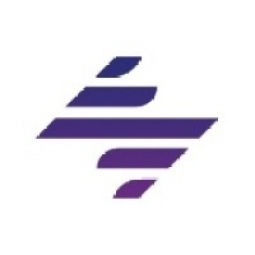Download PDF
Case Study: Spireon Fleet & Asset Intelligence and Tutle & Tutle Trucking
Technology Category
- Sensors - GPS
- Networks & Connectivity - Cellular
Applicable Industries
- Transportation
- Oil & Gas
Applicable Functions
- Logistics & Transportation
- Maintenance
Use Cases
- Fleet Management
- Asset Health Management (AHM)
- Theft Detection
Services
- System Integration
- Training
The Challenge
Tutle & Tutle Trucking, a Texas-based company that manages a fleet of 650 bulk trailers, was facing a significant issue with theft. The company was losing two to three trailers each year, each worth an estimated $60,000, often carrying up to $20,000 worth of sand. The loss of these trailers not only represented a direct financial loss but also resulted in a significant loss of productivity. Without any sort of tracking solution in place, the recovery of stolen trailers was nearly impossible. The company was stretched so thin that if one trailer was stolen, it might mean one or two of their employees would be out of work for a while until a replacement trailer was up and running. The company was in need of a solution that would provide real-time information on the location and status of its fleet.
About The Customer
Tutle & Tutle Trucking, Inc. is a company based in Cleburne, Texas, and has been in business since 1994. The company manages a fleet of 650 bulk trailers, the majority of which haul sand used for fracking by natural gas producers. Tutle & Tutle’s fleet serves many of the natural gas producers that are extracting gas from the Barnett Shale, a geological formation located in the Bend Arch-Fort Worth Basin in Texas. Experts estimate that the Barnett Shale might have the largest producible reserves of any onshore natural gas field in the country. However, Barnett Shale is known as a “tight” gas reservoir, meaning it can only be extracted efficiently through fracking. That means growing business opportunities for firms such as Tutle & Tutle – but also a spike in criminal activity associated with equipment and cargo theft.
The Solution
In search of a solution to tighten security and more effectively monitor and manage its trailer fleet, Tutle & Tutle selected Spireon’s FleetLocate rich data trailer management platform. Spireon’s next-generation GPS technology and M2M-based NSpire Intelligence Platform provided rich data the company could use for state-of-the-art tracking and analytics. The Spireon platform was a good fit to effectively secure, track, and provide real-time visibility into the movements of Tutle & Tutle's large and far-flung fleet of trailers. However, due to the rough, rocky, and remote terrain where the trailers operate, there was a challenge to ensure the devices could be attached to the trailer securely enough so that they would not be jostled or become dislodged in the process of hauling sand to wells. Working with Spireon’s installation services, they quickly devised a solution to fit their specific needs.
Operational Impact
Quantitative Benefit
Related Case Studies.

Case Study
Taking Oil and Gas Exploration to the Next Level
DownUnder GeoSolutions (DUG) wanted to increase computing performance by 5 to 10 times to improve seismic processing. The solution must build on current architecture software investments without sacrificing existing software and scale computing without scaling IT infrastructure costs.

Case Study
Remote Wellhead Monitoring
Each wellhead was equipped with various sensors and meters that needed to be monitored and controlled from a central HMI, often miles away from the assets in the field. Redundant solar and wind generators were installed at each wellhead to support the electrical needs of the pumpstations, temperature meters, cameras, and cellular modules. In addition to asset management and remote control capabilities, data logging for remote surveillance and alarm notifications was a key demand from the customer. Terra Ferma’s solution needed to be power efficient, reliable, and capable of supporting high-bandwidth data-feeds. They needed a multi-link cellular connection to a central server that sustained reliable and redundant monitoring and control of flow meters, temperature sensors, power supply, and event-logging; including video and image files. This open-standard network needed to interface with the existing SCADA and proprietary network management software.

Case Study
Refinery Saves Over $700,000 with Smart Wireless
One of the largest petroleum refineries in the world is equipped to refine various types of crude oil and manufacture various grades of fuel from motor gasoline to Aviation Turbine Fuel. Due to wear and tear, eight hydrogen valves in each refinery were leaking, and each cost $1800 per ton of hydrogen vented. The plant also had leakage on nearly 30 flare control hydrocarbon valves. The refinery wanted a continuous, online monitoring system that could catch leaks early, minimize hydrogen and hydrocarbon production losses, and improve safety for maintenance.

Case Study
Airport SCADA Systems Improve Service Levels
Modern airports are one of the busiest environments on Earth and rely on process automation equipment to ensure service operators achieve their KPIs. Increasingly airport SCADA systems are being used to control all aspects of the operation and associated facilities. This is because unplanned system downtime can cost dearly, both in terms of reduced revenues and the associated loss of customer satisfaction due to inevitable travel inconvenience and disruption.







